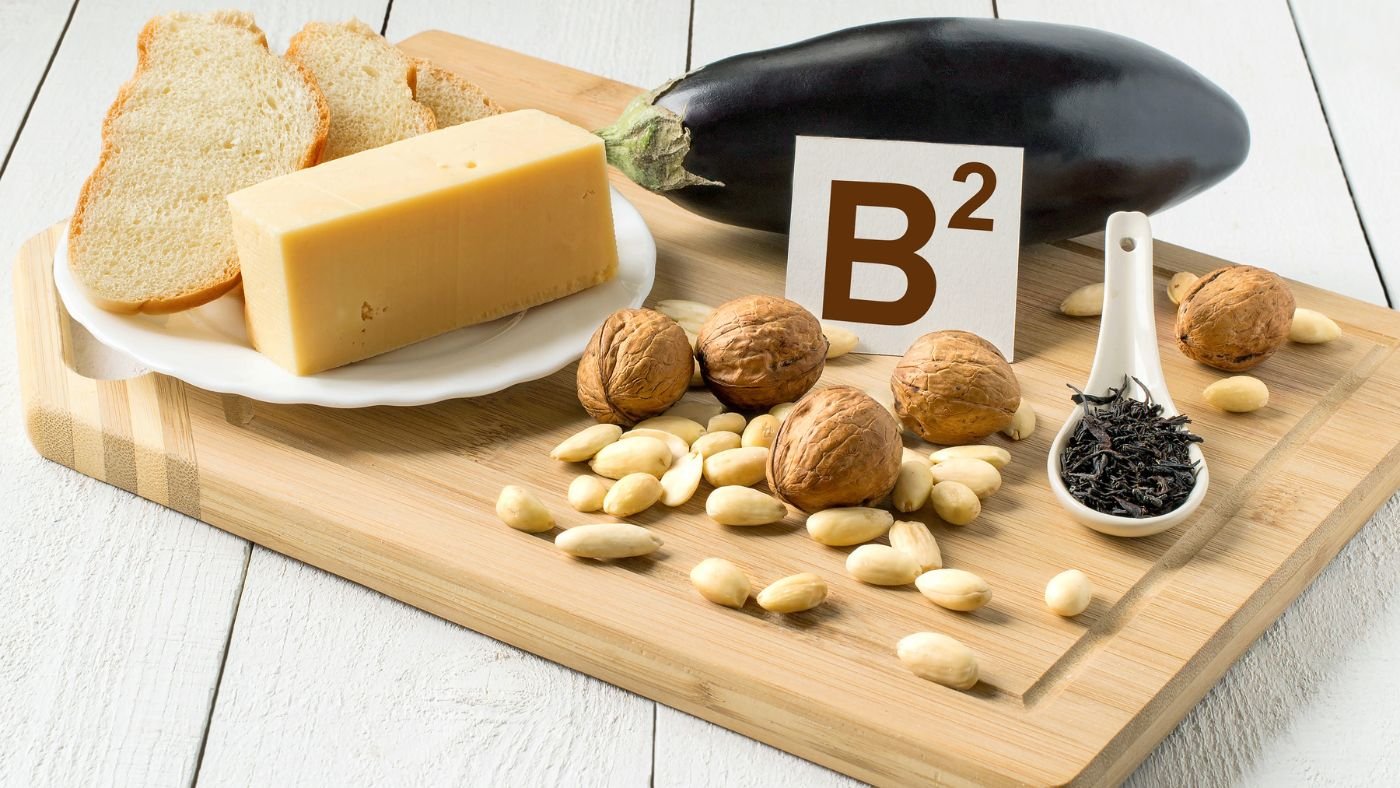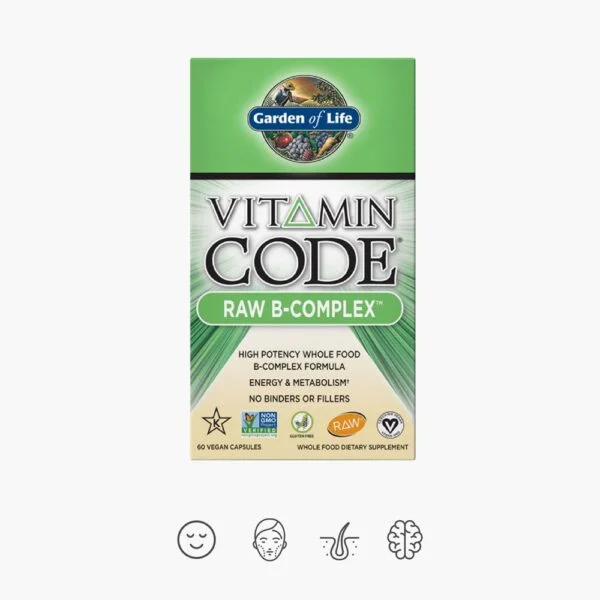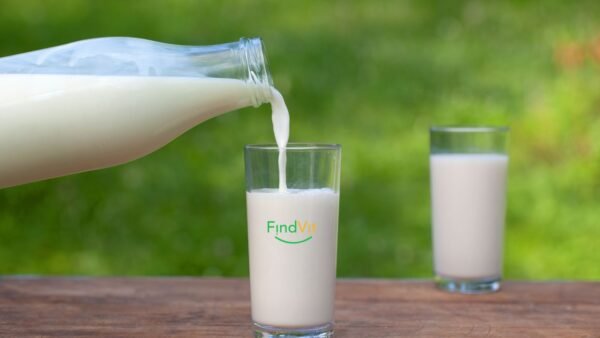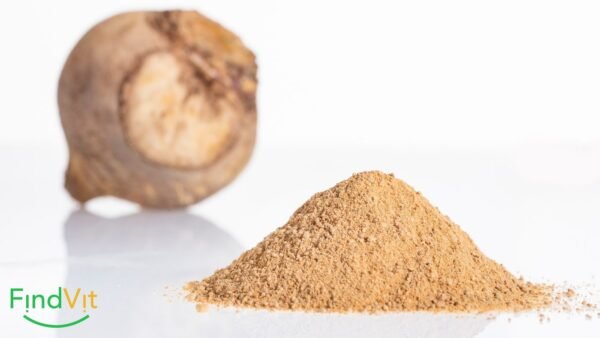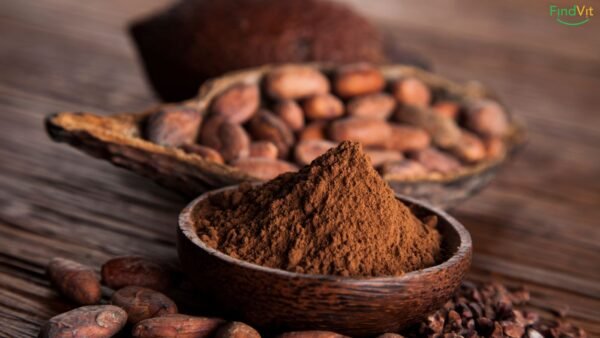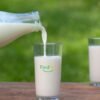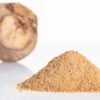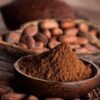Vitamin B2, also known as riboflavin, is one of the 8 B group vitamins. All B vitamins help the body convert food (carbohydrates) into body energy (glucose). B vitamins, often called the B complex, also help metabolize fats and proteins. B complex vitamins are essential for healthy liver, skin, hair and eye function. They also help the nervous system to function properly.
All B vitamins are water soluble, which means that the body does not store them. In addition, riboflavin acts as antioxidant, fighting against harmful particles in the body, the so-called free radicals. Free radicals can damage cells and DNA, which can contribute to the aging process as well as various health problems such as heart disease and cancer. Antioxidants such as riboflavin can fight free radicals and reduce or help prevent some of the damage they cause.

Vitamin B2 and its role in the body
Riboflavin is essential for several functions in the body, including:
- Energy production: Vitamin B2 helps the liver, heart, muscles and nervous system produce energy from food.
- Red blood cell production: Riboflavin is important for growth and red blood cell production.
- Vitamins B6 and of folate conversion: Riboflavin helps the body convert vitamin B6 and folate into forms it can use.
- Antioxidant activity: Riboflavin acts as an antioxidant by fighting free radicals and helping to reduce the damage they cause.
- Eye: Vitamin B2, along with other nutritional components, is important for normal vision.
Most healthy people who eat a balanced diet get enough riboflavin. However, older people and those who drink alcohol often can experience riboflavin deficiency due to poor nutrition.
Riboflavin deficiency symptoms
Riboflavin deficiency can manifest itself in the following symptoms:
- Fatigue
- Slowed growth
- Digestive problems
- Cracks and sores in the corners of the mouth
- Eye fatigue
- Swelling and sore throat
- Sensitivity to light

Vitamin B2 and health problems
Cataract
Vitamin B2, along with other nutritional components, is important for normal vision. Early research suggests that riboflavin may help prevent cataracts, which is damage to the lens of the eye that causes cloudy vision. In one study, people who took niacin and riboflavin supplements had fewer cases of cataracts than those who took other vitamins and nutrients. However, researchers don't know if this was due to riboflavin, niacin, or a combination of the two
Migraine headache
Several studies show that people with migraine can reduce the frequency and duration of migraine attacks by taking riboflavin. One study found that taking 400 mg of riboflavin per day reduced the number of migraine attacks by half. However, this study did not compare riboflavin with common medications used to prevent migraines. More research is needed.
Autism
Preliminary research shows that supplementing with vitamin B2, along with vitamin B6 and magnesium, reduces the amount of dicarboxylic acids (unusual organic acids) in the urine of autistic children.
Recommended dosages
RDA: The Recommended Daily Allowance (RDA) for men and women over the age of 19 is 1.3 mg and 1.1 mg per day, respectively. During pregnancy and breastfeeding, the dose increases to 1.4 mg and 1.6 mg per day, respectively.
UL: The tolerable upper limit (UL) is the maximum daily dose that is not likely to cause adverse effects in society. A UL for riboflavin has not been determined because toxic levels have not been observed in food or long-term high-dose supplementation.

Vitamin B2 and health
Because riboflavin helps many enzymes with various daily functions throughout the body, a deficiency can cause health problems. Studies have shown that long-term riboflavin deficiency can lead to brain and heart problems and some types of cancer.
Migraine
Riboflavin works by reducing nerve oxidative stress and inflammation that contribute to migraine headaches. Vitamin is also needed normally mitochondria for activities; Migraines sometimes cause mitochondrial abnormalities in the brain. Therefore, riboflavin has been studied as a prophylactic therapy for migraine prevention.
- In a controlled trial, 55 adults with migraine were given daily doses of 400 mg of riboflavin or a placebo, and the people were followed for four months. Riboflavin was found to reduce the frequency of migraine attacks by half compared to the placebo group. The authors observed that the beneficial effects of riboflavin did not begin until the end of the first month and showed the greatest benefit after three months of use.
- A review of 11 clinical trials on riboflavin as a prophylactic treatment for migraine yielded mixed results. Studies have shown a reduction in the frequency of migraines in adults and children. The dose was usually 400 mg per day for adults and 200 mg per day for children, given over three months. No negative side effects were observed.
The Quality Standards Committee of the American Academy of Neurology and the American Headache Society have concluded that riboflavin is probably effective in the prevention of migraine and have approved its use as an adjunctive treatment.
Cardiovascular diseases
Since riboflavin helps many enzymes with various daily functions throughout the body, a deficiency of this vitamin can cause health problems. Animal studies have shown that long-term riboflavin deficiency can cause brain and heart problems and some types of cancer.
Riboflavin regulates levels of circulating homocysteine, an amino acid that enters the body from animal protein foods such as meat. High blood pressure is a risk factor for cardiovascular disease (CVD). Riboflavin works together with other B vitamins, such as B6, folate, and B12 breaking down homocysteine in the body.
Animal studies have shown cardiac abnormalities and increased biomarkers of heart disease in riboflavin-deficient animals, as well as cardioprotective effects of riboflavin by increasing the production of antioxidant enzymes. However, the regulation and transport of riboflavin in the human heart is not clearly understood.
Epidemiological studies have not shown that homocysteine lowering with B vitamin supplementation reduces heart attacks or CVD death.

Food sources
Riboflavin is found mostly in meat and fortified foods, as well as some nuts and green vegetables. Vitamin B2 is rich in:
- Milk
- Yogurt
- Cheese
- Eggs
- Lean beef and pork
- Organic meat products (beef liver)
- Chicken breast
- Salmon
- Enriched cereals and bread
- Almonds
- Spinach
Symptoms of riboflavin deficiency and excess
Vitamin B2 Deficiency
Riboflavin deficiency is very rare in Europe. Thyroid disorders can increase the risk of deficiency. Riboflavin deficiency usually occurs in conjunction with other nutrient deficiencies, such as in people who eat little. Symptoms may include:
- Chapped lips
- Sore throat
- Swelling of the mouth and throat
- Swollen tongue (glossitis)
- Hair loss
- Skin rash
- Anemia
- Red itchy eyes
- Cataract in severe cases
Health professionals recommend using only high-quality and natural food supplements to maintain vitamin B2 and improve health:
-
Garden of life Vitamin Code RAW B-COMPLEX - B vitamins, complex, 60 vegan capsules39,90 €Rated 5.00 out of 5 based on 2 customer ratings
Groups at higher risk of deficiency:
- Vegans/vegetarians due to reduced consumption of dairy and meat products or their complete exclusion.
- Pregnant women, especially those who consume little milk (lactose intolerance) or meat, as the growing fetus needs more nutrients.
Vitamin B2 Excess
Excess riboflavin from foods and supplements has not been observed. The intestine can only absorb a limited amount of riboflavin at a time, and the excess is quickly excreted in the urine. Therefore, tolerable upper limits for riboflavin have not been established.
do you know
Have you ever wondered why we don't usually see milk in glass bottles in stores? The reason is riboflavin. If the vitamin is exposed to too much light, it can be deactivated from its effective form. As a result, milk is now usually sold in cartons or opaque plastic containers to block out light.
